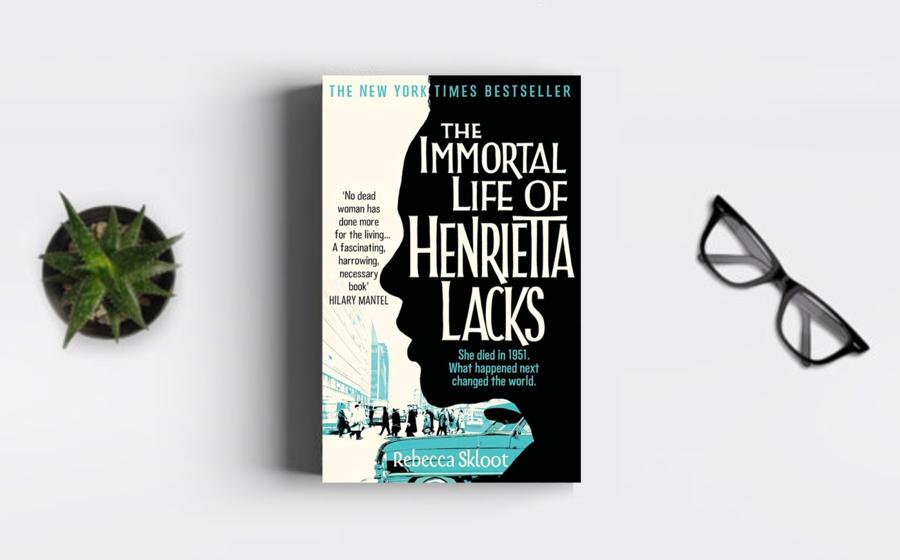"The Immortal Life of Henrietta Lacks," published in
2010, has become a contemporary classic that bridges the
realms of science, ethics, and the profound impact of
one woman's cells on medical research. This nonfiction
narrative weaves together the compelling story of
Henrietta Lacks, an African American woman whose cells
were unknowingly harvested for scientific research in
the 1950s, and the ethical implications that surround
the use of her immortal cell line. As we delve into the
reasons behind its acclaim and enduring relevance, it
becomes evident that "The Immortal Life of Henrietta
Lacks" stands as a modern exploration of human rights,
medical ethics, and the complex intersection of science
and humanity.
The narrative unfolds as a dual
biography, chronicling both Henrietta Lacks' life and
the scientific legacy of her cells, known as HeLa cells.
Henrietta, a woman from Baltimore with limited access to
healthcare, unknowingly became a central figure in the
field of biomedical research when her cancer cells were
taken without her consent during a routine medical
procedure in 1951. HeLa cells, unique for their ability
to replicate indefinitely, became a crucial tool for
scientific discovery and medical advancements, leading
to breakthroughs in areas such as polio vaccine
development, cancer research, and in vitro
fertilization.
One of the novel's notable
strengths is Skloot's meticulous research and dedication
to giving Henrietta Lacks a voice. Skloot delves into
the historical and cultural context of Henrietta's life,
providing readers with a nuanced understanding of her
experiences as a woman, an African American, and a
patient in the racially segregated medical system of the
1950s. By humanizing Henrietta, Skloot elevates the
narrative beyond a scientific exploration, inviting
readers to empathize with the woman behind the cells and
consider the ethical implications of medical research on
vulnerable populations.
The novel navigates
complex ethical terrain, raising fundamental questions
about consent, privacy, and the ownership of biological
materials. Henrietta Lacks never provided explicit
consent for the use of her cells, and her family
remained largely unaware of the ongoing use of HeLa
cells in scientific research for decades. Skloot
explores the ethical implications of this lack of
informed consent, probing the boundaries between
scientific progress and individual rights. The narrative
prompts readers to reflect on the ethical
responsibilities of the scientific community and the
need for informed consent to protect the rights of
individuals whose biological materials contribute to
medical advancements.
Skloot's storytelling is
marked by its empathetic approach and commitment to
presenting a balanced narrative. She not only delves
into the scientific achievements facilitated by HeLa
cells but also scrutinizes the ethical lapses and
exploitation that occurred in their acquisition. The
narrative unfolds as a journey of discovery for both the
author and the Lacks family, intertwining scientific
history with personal narratives to create a holistic
portrayal of Henrietta's legacy. Skloot's ability to
navigate the complexities of this story with sensitivity
and nuance contributes to the novel's acclaim as a
contemporary classic that transcends traditional genres.
The novel's thematic exploration extends beyond the
scientific and ethical dimensions to encompass broader
social issues, including disparities in healthcare,
racial inequality, and the intersection of poverty and
medical exploitation. Henrietta Lacks, a woman from a
disadvantaged background, represents the
often-overlooked individuals whose contributions to
scientific progress come at a high personal cost. Skloot
prompts readers to consider the broader implications of
medical research on marginalized communities and
advocates for a more equitable and ethical approach to
scientific advancements.
"The Immortal Life of
Henrietta Lacks" serves as a bridge between the
scientific community and the general public, making
complex scientific concepts accessible to a wide
readership. Skloot skillfully translates scientific
jargon into comprehensible language, ensuring that
readers with varying levels of scientific background can
engage with and appreciate the significance of HeLa
cells. This accessibility contributes to the novel's
status as a contemporary classic that facilitates a
broader understanding of the intricate relationship
between science and society.
The enduring
relevance of the novel is evident in its widespread
acclaim and continued presence in academic curricula.
"The Immortal Life of Henrietta Lacks" has become a
staple in discussions about medical ethics, scientific
responsibility, and the intersection of race and
medicine. Its inclusion in educational settings speaks
to its capacity to spark critical conversations and
prompt future generations to consider the ethical
implications of scientific advancements. The novel's
impact is not confined to the realm of literature; it
has spurred policy discussions, led to changes in
informed consent practices, and contributed to a broader
awareness of the ethical challenges within the
scientific community.
The portrayal of
Henrietta's family, particularly her daughter Deborah,
adds a personal and emotional layer to the narrative.
Skloot's relationship with the Lacks family becomes an
integral part of the story, highlighting the human
connections forged in the pursuit of understanding.
Deborah's journey, marked by a desire to learn about her
mother's legacy and navigate the complexities of medical
ethics, adds a poignant and relatable dimension to the
narrative. Through Deborah, Skloot illustrates the human
impact of scientific research, emphasizing the
importance of acknowledging the individuals behind the
contributions to medical knowledge.
"The Immortal
Life of Henrietta Lacks" has achieved international
success and has been adapted into various mediums,
including radio, theater, and television. The continued
interest and adaptation of the novel into different
formats underscore its enduring cultural impact and its
ability to resonate with diverse audiences. The
adaptation into other mediums ensures that Henrietta
Lacks' story reaches new audiences and maintains its
relevance in contemporary conversations about science,
ethics, and human rights.
"The Immortal Life of Henrietta Lacks" by Rebecca Skloot stands as a contemporary classic that transcends traditional genres, offering a compelling exploration of science, ethics, and human rights. Skloot's meticulous research, empathetic storytelling, and thematic depth contribute to a narrative that invites readers to reflect on the complexities of medical research and the ethical responsibilities of the scientific community.






